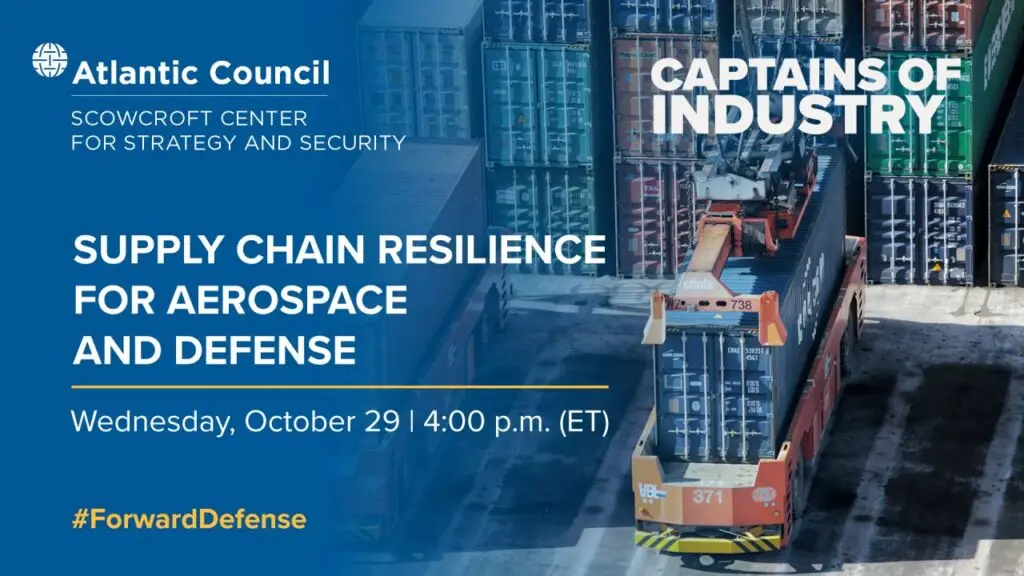
On October 29, Acutec proudly participated in the Atlantic Council’s Captains of Industry event, hosted by the Scowcroft Center for Strategy and Security’s Forward Defense program. The panel, focused on “Supply Chain Resilience for Aerospace and Defense,” brought together senior industry executives to address the mounting challenges facing the A&D supply chain in a post-pandemic world.
 Representing Acutec and the broader community of small manufacturers, Elisabeth Smith joined the panel to spotlight the critical role rural suppliers play in national security and economic development. With over 200 attendees joining both virtually and in person, including policymakers, defense strategists, and industry leaders, this event provided a vital platform for elevating the voices of small businesses from regions like Meadville, Pennsylvania.
Representing Acutec and the broader community of small manufacturers, Elisabeth Smith joined the panel to spotlight the critical role rural suppliers play in national security and economic development. With over 200 attendees joining both virtually and in person, including policymakers, defense strategists, and industry leaders, this event provided a vital platform for elevating the voices of small businesses from regions like Meadville, Pennsylvania.
Small Suppliers, Big Impact
Elisabeth emphasized that small manufacturers like Acutec are not just participants in the A&D ecosystem, they are innovators and problem-solvers. “We have the capacity and capability to support these supply chains,” she noted, “but barriers to entry remain high.” Complex purchase order flow, rising compliance costs, and inflationary pressures disproportionately affect smaller suppliers, making it harder to compete and contribute.
Despite the recent government shutdown, Acutec has not seen major disruptions, echoing its experience in 2019. However, the uncertainty caused by repeated Continuing Resolutions continues to create volatility in funding, which in turn hampers long-term planning and investment for small businesses.
Diagnosing the Disruption
Panelists explored why maintaining a resilient supply chain in aerospace and defense is uniquely difficult. Elisabeth shared real-world examples of how disruptions, whether from global sourcing delays or regulatory bottlenecks, can ripple through operations and impact customer satisfaction. She stressed that visibility into the root causes of instability is still lacking, and that both corporate strategy and public policy must evolve to address these blind spots.
A Call to Action
Looking ahead, Acutec is committed to strengthening its supply chain resilience through strategic investments in workforce development, digital infrastructure, and domestic partnerships. But Elisabeth made clear that systemic change requires collaboration:
- Government must streamline supplier qualification processes and stabilize federal budgets.
- Industry must prioritize transparency and share risk data across the supply chain.
- Investors and analysts must recognize the long-term value of resilient, diversified sourcing.
- Technologists must help build tools that improve traceability and agility.
As highlighted by the Aerospace Industries Association, small businesses are the backbone of aerospace innovation. Acutec’s participation in this national dialogue reinforces that rural manufacturers are not just stakeholders—they are strategic assets in America’s defense and economic future.
Meadville on the Map
For Acutec, this event was more than a panel, it was a statement. “It’s important for Meadville to know that we have a voice in international policy and trade,” Elisabeth said. “We’re representing thousands of other small manufacturers and speaking up for communities like ours, which have outsized importance in national security.”
The road to a smarter, stronger supply chain is long, but Acutec is proud to be part of the journey.
